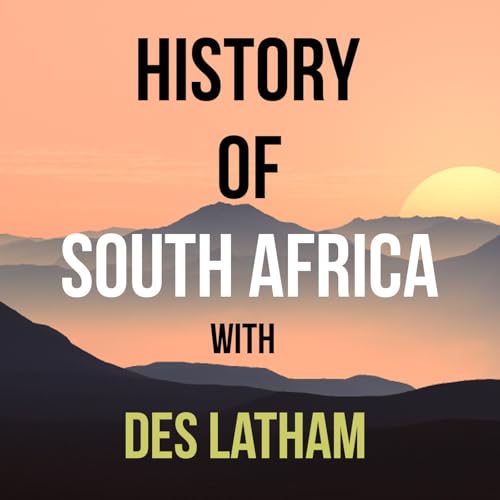
Episode 244 - Twitters' Transvaal Annexation, Rider Haggard’s Role and Railways
Failed to add items
Sorry, we are unable to add the item because your shopping cart is already at capacity.
Add to basket failed.
Please try again later
Add to Wish List failed.
Please try again later
Remove from Wish List failed.
Please try again later
Follow podcast failed
Unfollow podcast failed
-
Narrated by:
-
By:
About this listen
While King Solomon’s Mines is Rider Haggard’s most popular work, Allan Quartermain has since reappeared in movies in the League of Extraordinary Gentlemen, which gave his books a bit of a push. His novels, which blended exploration, myth, and early ideas of evolution, also influenced the subconscious of his generation, resonating with spiritual and psychological themes that were explored by figures like Jung and Freud.
Furthermore, his work reflects and grapples with late Victorian anxieties, including imperial politics, the changing role of religion, and burgeoning notions of race and empire.
Right now, we’re saddling up with Theophilus Shepstone in Pietermaritzburg - it’s 1877.
If you recall last episode, Transvaal President Burgers had gone to war against baPedi chief Sekhukhuni, which ended in a stalemate and reports of atrocities committed by German lead mercenaries.
Burgers had already complained in England about their treatment of the Boer claims to the diamond fields - and the Colonial office had coughed up 90 000 pounds as compensation. You could call it a bribe, because that’s what it was. The boers accepted the compensation, but did not back down on their claims to land in the vicinity of the Transvaal, including baPedi land.
As long as the Transvaal remained receptive to the confederation idea at least in Carnarvon’s mind, there was no real conflict to deal with amongst the local officials. But there was growing tension between an historian JJ Froude and Garnet Wolseley for example.
Froude had been sent on a fact-finding mission to the colonies by Carnarvon and he became a surprising advocate for the Boers and the Free State and Transvaal Republics. His advice to Carnarvon was to let the states handle their own problems, as they resented interference from Downing Street.
Cape Governor Sir Henry Barkly had been sending Carnarvon reports drawn largely from pro-annexationist newspapers in the Transvaal and the Cape Colony. These implied that the Transvaal was nearing a state of anarchy as a result of its war with the Sekukuni's baPedi. Eagerly lapping all this up was Sir Garnet Wolseley who was the very epitome of the Stiff upper lip Brit, a military officer and administrator, represented the opposite, more interventionist imperial view. In late December 1876, Sir Theophilus Shepstone departed from Pietermaritzburg in Natal with a small, almost symbolic, escort of just 25 Natal Mounted Police and a handful of officials including the young H Rider Haggard. Just as an aside, Haggard was not being paid for his duties as Shepstone’s secretary. Work experience I guess you’d call it. However, Shepstone's secret instructions were far more decisive: if he deemed it necessary and opportune, he was to annex the territory to the British Crown.
The Transvaal had no easy revenue base, and Shepstone introduced new taxes on both black and white Transvalers, while his administrative reforms chafed the Boers. Most resented they now had no elected representation under British rule and resistance started almost immediately.
No reviews yet
In the spirit of reconciliation, Audible acknowledges the Traditional Custodians of country throughout Australia and their connections to land, sea and community. We pay our respect to their elders past and present and extend that respect to all Aboriginal and Torres Strait Islander peoples today.



